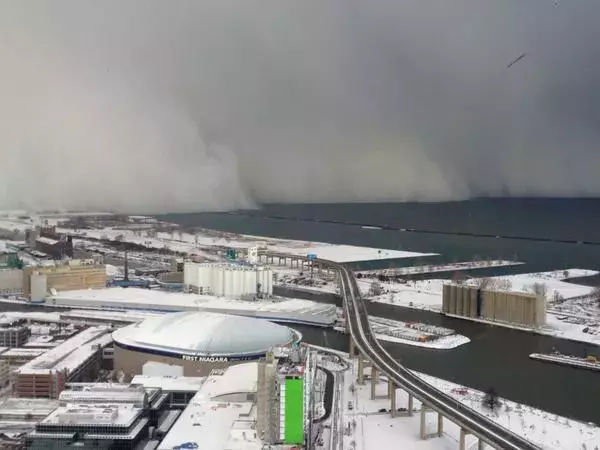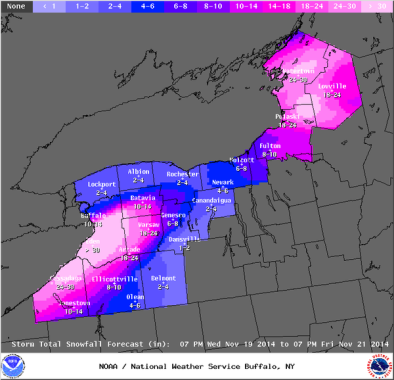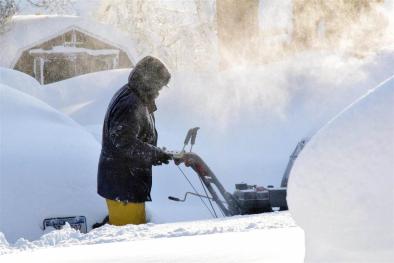Headline
Global Warming Is Probably Boosting Lake-Effect Snows
United States

Lake-effect snow storm hits Buffalo, New York. Photo: ABC
Truly extreme lake-effect snows gather their energy from a wide temperature differential between the lake temperature and the air temperature. That temperature contrast produces atmospheric instability—the warm air immediately over the lake wants to surge upward through the colder air on top, bringing with it heaps of evaporated moisture. That moisture is quickly converted to snowfall in massive quantities...As the Great Lakes warm due to climate change, there’s now more evaporation, and more of an opportunity for that drastic water-air temperature difference to manifest itself, especially during the kinds of intense cold air outbreaks that we’ve been seeing seemingly more of over the last few years.
Related Content
Science Source
| American Meteorological Society
Sensitivity of Lake-Effect Snowfall to Lake Ice Cover and Temperature in the Great Lakes Region
David M. Wright, Derek J. Posselt, and Allison L. Steiner
Science Source
| Geophysical Research Letters
Distinctive climate signals in reanalysis of global ocean heat content
Balmaseda, Magdalena A., Trenberth et al
Headline

Feb 15, 2016 | MPR News
Buffalo mega snowstorm tied to climate change?
Headline

Feb 15, 2016 | NBC News
Freezing on East Coast? Blame a Super Typhoon and Maybe Global Warming


